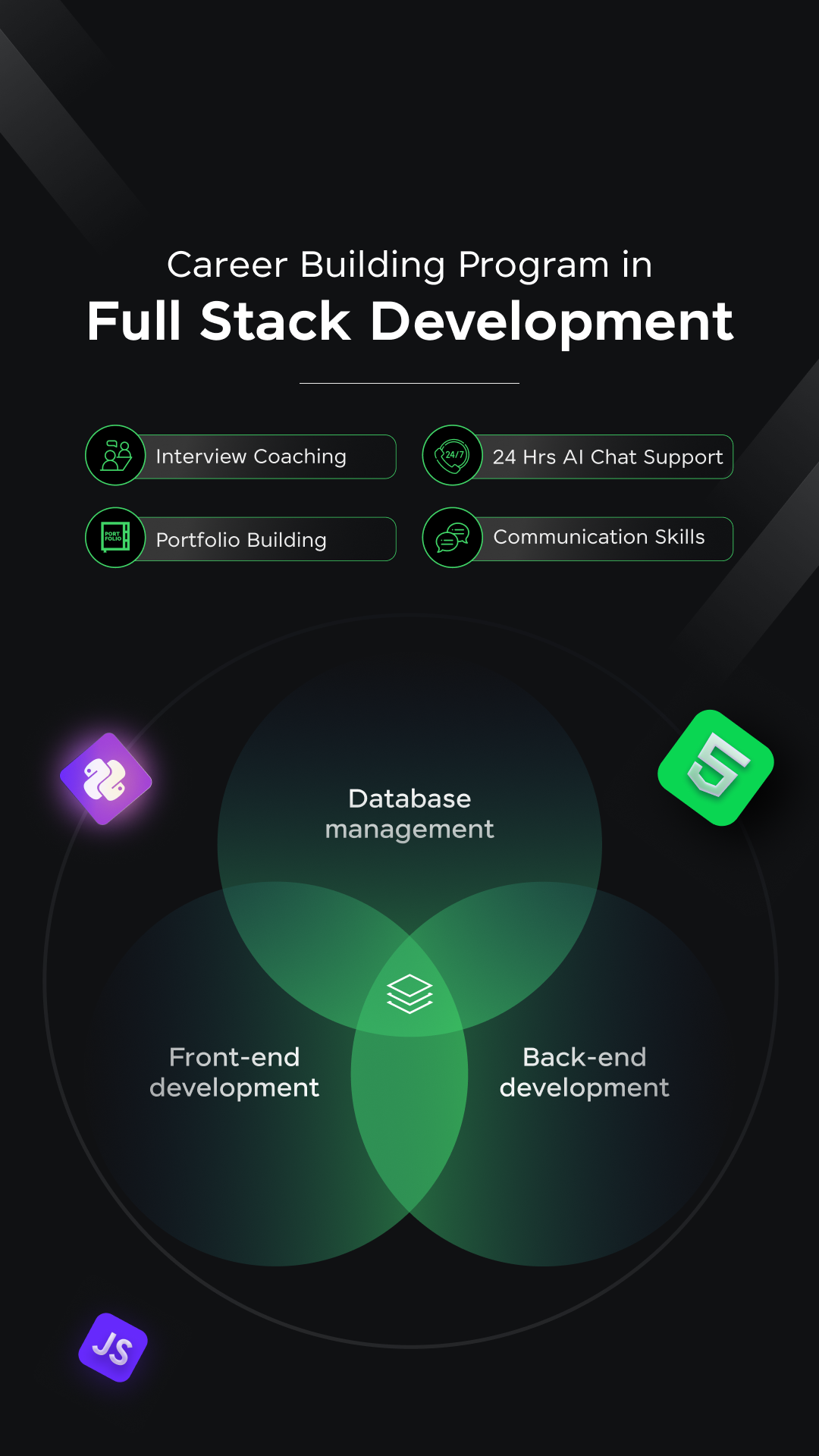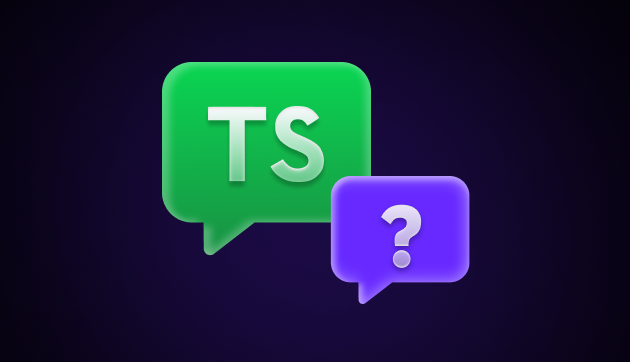
Web Development vs App Development: An Intense Analysis | 2025
Mar 21, 2025 5 Min Read 5544 Views
(Last Updated)
Since the pandemic, there’s been a rise in digital consumption among people and have you ever thought about how websites and mobile apps come to life? They’re the digital tools we use daily, but have you ever wondered which is better for your needs: web development or app development?
For the past few years, since the boom of smartphones in India, the words Web development and App development have been ringing in our ears constantly. What sets them apart, and how they influence your online experiences, are the questions that are most important in this current digital age.
In this article, we’ll explore the world of web development and app development, answering the questions that might be on your mind. By the end, you’ll have a clearer picture of what both web development and app development do and how their future is going to be. So, let’s get started.
Table of contents
- What is Web Development?
- Types of Web Development
- Importance of Web Development
- Roles in Web Development
- What is App Development?
- Key Aspects of App Development
- Importance of App Development
- Roles in App Development
- Comparative Analysis of Web Development and App Development
- Future of Web and App Development
- Conclusion
- FAQ
- Do web apps and mobile apps offer similar performance?
- Is cross-platform development easier for web or app development?
- Which is easier to maintain, a website or an app?
- Which programming languages are commonly used in app development?
- What are the key coding languages for web development?
What is Web Development?
Web development is the practice of building and maintaining websites on the Internet. It includes a wide range of tasks, from creating simple static web pages to complex web applications with dynamic content and interactivity.
Before diving into the next section, ensure you’re solid on full-stack development essentials like front-end frameworks, back-end technologies, and database management. If you are looking for a detailed Full Stack Development career program, you can join GUVI’s Full Stack Development Career Program with Placement Assistance. You will be able to master the MERN stack (MongoDB, Express.js, React, Node.js) and build real-life projects.
Additionally, if you want to explore JavaScript through a self-paced course, try GUVI’s JavaScript self-paced certification course.
At its core, web development involves writing code to instruct web browsers on how to render and display the content of a web page. This code is typically written in languages like HTML (Hypertext Markup Language), CSS (Cascading Style Sheets), and JavaScript. Here’s a breakdown of the key components:
- HTML (Hypertext Markup Language): HTML serves as the foundation of web development. It provides the structure and content of a web page, defining elements like headings, paragraphs, images, links, and more.
- CSS (Cascading Style Sheets): CSS complements HTML by determining the visual presentation of a web page. It specifies the layout, colors, fonts, and overall styling of elements, ensuring that the web page looks attractive and consistent.
- JavaScript: JavaScript is a powerful scripting language that adds interactivity to websites. It allows developers to create dynamic elements, handle user input, and fetch data from servers, making websites more engaging and responsive.
Types of Web Development
Web development can be divided into two main categories:
- Front-End Development: Front-end developers focus on the client side of web development, where the user interacts with the website. They work on creating visually appealing and user-friendly interfaces, ensuring that web pages are responsive and accessible across various devices. Their work involves coding in HTML, CSS, and JavaScript to build the structure, design, and interactivity of web pages.
- Back-End Development: Back-end developers concentrate on the server side of web development. They build the underlying infrastructure that powers the website, manages data, and handles server requests. Back-end development often involves working with server-side programming languages, databases, and server management tools to ensure the smooth functioning of web applications.
Importance of Web Development
Web development is essential for several reasons:
- Global Reach: Websites can be accessed from anywhere in the world, enabling individuals and businesses to connect with a global audience.
- Business Growth: For businesses, an online presence is crucial for marketing, sales, and customer engagement. E-commerce websites allow companies to sell products and services directly to customers.
- Information Sharing: Web development enables the dissemination of information, making education, news, and research readily available to the public.
- Innovation: The web is a breeding ground for innovation. New technologies and web development tools are continually emerging, enabling developers to create exciting and groundbreaking applications.
Roles in Web Development
The skills required for web development are enormous as it is the face of any company and once you hone them, the roles offered by it can vary, including:
- Front-End Developers: They specialize in creating the user interface and ensuring the visual design of the website is engaging and user-friendly.
- Back-End Developers: They work on the server side, managing data and ensuring the functionality of web applications.
- Full-Stack Developers: These professionals have expertise in both front-end and back-end development, allowing them to handle the entire web development process. Learning full-stack development can give you the advantages of both front-end and back-end equipping you with better knowledge.
- Web Designers: While not developers, designers focus on the aesthetics and layout of web pages, collaborating closely with developers to achieve the desired look and feel.
What is App Development?
App development, short for application development, is the process of creating software applications designed to run on various devices, including mobile phones, tablets, and desktop computers.
These applications, commonly referred to as apps, have become an integral part of modern life, offering a wide range of functionalities, from entertainment and communication to productivity and e-commerce. In essence, app development is the art and science of building the software that makes our devices smart and our lives more convenient.
Key Aspects of App Development
- Programming Languages: App developers use programming languages like Java, Swift, Kotlin, and JavaScript to write the code that powers apps. The choice of language depends on the platform (iOS, Android, or cross-platform) and the app’s specific requirements.
- User Interface (UI) and User Experience (UX) Design: Designers and developers collaborate to create an attractive and user-friendly interface. UI design focuses on the look and feel of the app, while UX design ensures that the app is intuitive and easy to use.
- Problem Solving: App developers often encounter bugs and glitches that need to be identified and fixed. Problem-solving skills are crucial for ensuring the app functions as intended.
- API Integration: Many apps rely on connecting with external services and databases. Integrating these services seamlessly into the app’s functionality is a vital skill.
- Testing and Debugging: Rigorous testing and debugging are necessary to ensure that the app works correctly and is free of errors before it’s released to users.
Importance of App Development
App development has become a fundamental part of our digital lives for several reasons:
- Enhanced Convenience: Apps provide quick and easy access to a wide array of services, information, and entertainment, making our daily tasks more convenient and efficient.
- Business and Commerce: Businesses use apps to engage with customers, offer products and services, and gather data on user behavior. Mobile apps often serve as primary revenue channels or tools for expanding their online presence.
- Innovation and Creativity: App development is a space for innovation, creativity, and entrepreneurship. It enables individuals and companies to bring unique and transformative ideas to life.
- Personalization: Apps can be tailored to individual preferences, providing a personalized user experience, whether it’s in the form of news curation, fitness tracking, or personalized shopping recommendations.
Roles in App Development
- Mobile App Developers: These developers specialize in writing the code that powers the app, making it function on specific platforms, such as iOS (Apple) or Android (Google).
- UI/UX Designers: UI/UX designers are responsible for creating an appealing and user-friendly interface. They determine how the app looks and how users interact with it.
- Quality Assurance (QA) Testers: QA testers conduct thorough testing to identify and report bugs, ensuring that the app is reliable and user-friendly.
- Project Managers: Project managers oversee the development process, coordinating tasks, managing budgets, and ensuring that the app aligns with the business’s objectives.
- Product Owners: These individuals define the app’s features and functionalities, making critical decisions throughout the development process.
Comparative Analysis of Web Development and App Development

This section includes a dissection of both web development and app development covering their features, their importance, and their prowess in this ever-growing tech world. So let’s understand both of them better by using a comparative analysis:
| Aspect | Web Development | App Development |
| Platform | Websites accessed through web browsers. | Applications installed on specific devices. |
| Coding Languages | HTML, CSS, JavaScript, and more for front-end and back-end. | Various languages, e.g., Java, Swift, Kotlin, JavaScript. |
| User Access | Accessible from any device with a web browser and internet connectivity. | Installed on the device; requires app store download. |
| Development Time | Typically faster development and deployment. | Development may take longer due to platform-specific coding. |
| User Interaction | Interacts with users through web browsers. | Provides a customized interface on the device itself. |
| Offline Access | Limited offline functionality, often reliant on caching. | Can offer full offline access based on the app’s design. |
| Cross-Platform Development | Easier to create responsive websites for various devices. | Requires separate development for Android and iOS, or cross-platform tools like React Native. |
| Updates | Immediate updates to content possible. | Immediate updates to content are possible. |
| Maintenance | Easier maintenance with server-side updates. | Maintenance may require updates for different platforms. |
| Performance | Typically relies on the user’s device and internet speed. | Can offer faster and optimized performance due to native coding. |
| Storage Access | Limited access to device storage for data caching. | Full access to device storage for data storage and retrieval. |
| Development Cost | Generally more cost-effective due to a single development for all platforms. | May require higher development costs due to separate iOS and Android development. |
| Data Synchronization | May require manual data synchronization between devices. | Can offer automatic data synchronization with server and other devices. |
| User Experience (UX) Design | Easier to create consistent UX across different devices. | Requires specialized design for each platform to match user expectations. |
| Security | Less control over data security on user’s devices. | Provides better control over data security on the device. |
Future of Web and App Development
The future of web development and app development holds great promise, with ongoing trends and emerging technologies shaping the fields.
In web development, we can expect continued growth in the importance of user experience and accessibility. Websites will become more interactive and responsive, offering seamless experiences on a variety of devices, from desktops to smartphones and even emerging technologies like augmented reality (AR) and virtual reality (VR).
Progressive Web Apps (PWAs) will gain traction, blurring the lines between traditional websites and mobile apps, allowing users to access web-based applications with offline capabilities and better performance.
Artificial intelligence (AI) and machine learning are set to play a substantial role in both web and app development. AI-driven chatbots, personalization algorithms, and data analytics will enhance user engagement and tailor content to individual preferences.
For app development, the future will likely see a growing emphasis on cross-platform development. Tools and frameworks like React Native, Flutter, and Xamarin will streamline app creation, making it easier and more cost-effective to develop apps that work across multiple platforms.
Kickstart your Full Stack Development journey by enrolling in GUVI’s certified Full Stack Development Career Program with Placement Assistance where you will master the MERN stack (MongoDB, Express.js, React, Node.js) and build interesting real-life projects. This program is crafted by our team of experts to help you upskill and assist you in placements. Alternatively, if you want to explore JavaScript through a self-paced course, try GUVI’s JavaScript self-paced course.
Conclusion
In the ongoing debate of web development versus app development, it’s clear that both have their unique strengths and applications. Web development excels in accessibility, cost-effectiveness, and cross-platform reach, making it a top choice for businesses and content providers looking to offer information and services to a broad audience.
On the other hand, app development offers enhanced performance, offline access, and a more tailored user experience. It’s ideal for those wanting to provide specialized services, interactivity, and data storage on users’ devices. The choice between the two ultimately hinges on your specific goals, target audience, and the nature of the content or services you aim to deliver.
FAQ
Web apps may have performance limitations compared to mobile apps, as they rely on the user’s device and internet speed.
Web development is generally easier for creating responsive websites for various devices.
Websites are generally easier to maintain as updates can be performed on the server-side without user downloads. App updates may require user downloads or automatic updates.
Java, Swift, Kotlin, and JavaScript are some of the common programming languages for app development.
Key languages for web development include HTML, CSS, and JavaScript, among others.






















![How to Become a Web Developer Without a Degree: A Beginner's Guide [2025] 3 web developer without a degree](https://www.guvi.in/blog/wp-content/uploads/2025/05/How-to-Become-a-Web-Developer-Without-a-Degree.png)

![What is ReactJS? A Beginner's Guide [2025] 5 what is reactjs](https://www.guvi.in/blog/wp-content/uploads/2025/04/What-is-ReactJS_-A-Beginners-Guide.png)





![Top 12 Best Web Development Projects for All Techies [With Source Code] 10 web development project](https://www.guvi.in/blog/wp-content/uploads/2023/08/Feature-Image.webp)

Did you enjoy this article?